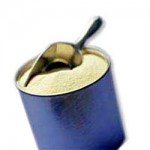Alan Aragon has over 15 years of success in the fitness field. He earned his Bachelor and Master of Science in Nutrition with top honors. Alan is a continuing education provider for the Commission on Dietetic Registration, National Academy of Sports Medicine, American Council on Exercise, and National Strength & Conditioning Association.
In continuation of our Nutrition Facts (Part 1) session with Alan, we dive into some of the most popular nutrition-related questions and attempt to resolve the common misconceptions associated with them. Achieving the body you desire requires understanding the nutritional component as best as you can, and often times popular beliefs relating to fitness-specific nutrition are misleading (at best). Let’s continue ironing out the difference between reality and popular (yet unsupported) claims!
6) Complex vs. Simple Carbohydates – (again a derivative of question 1) Many people choose to eat complex over simple carbohydrates, but is there any difference when we’re dealing with body composition?
A) Often times the claim is made that the only reason complex carbohydrates are preferred is because they increase satiety, keeping you less able to turn to snacks and other foods, whereas simple carbohydrates are digested faster and decrease satiety (making you more vulnerable to snacking, etc.). That becomes the real difference between eating one over the other, boiling down to the basics of the influence each has over total caloric intake on the individual. Your take on this?
Alan: There are no clear-cut associations between a carb’s “complexity” and its ability to satiate. However, from the standpoint of not diluting the diet’s micronutrient density, it’s wise to keep non-milk added sugars (also called non-milk extrinsic sugars) down to a low roar. The research suggests a maximum of 20-25% of total kcals coming from NMEs in order to avoid impinging upon the essential vitamin/mineral concentration of the diet. This is the main concern, not satiety per se.
B) High GI, Low GI – is it important, or has it been largely debunked?
Alan: GI has zero bearing on anyone (including diabetics) unless you fulfill ALL of the following conditions: a) you consume a high-carb/low-protein/low-fat/low-fiber diet, b) you remain in a chronically hypercaloric state for the purpose of weight gain, and c) you remain sedentary while maintaining conditions a & b. Then & only then might GI matter.
7) Brown Rice, Whole Wheat Anti-Nutrient – the idea those versions of foods that are deemed very “healthy” for you are filled with anti-nutrients that actually inhibit the absorption of nutrients/vitamins/minerals in your body, rendering them mostly nothing more than overpriced versions of their processed counterparts (white bread/white rice). Any truth to this?
Alan: Yes. Research comparing them head-to-head has found brown rice to be inferior for nitrogen retention, and no better in terms of bioavailability of essential micronutrients. People make all kinds of assumptions about the superiority of brown rice that just isn’t true.
8) Meal Frequency – 6 meals, 3 meals, 1 giant meal (intermittent fasting): is there an optimal way to eat or does your body adapt to whatever you give it as long as you fulfill your macro and caloric needs?
Alan: Bottom line is that meal frequency should be set according to personal preference, tolerance, & goals. There is not metabolic advantage to higher meal frequency. This has been demonstrated repeatedly in tightly controlled research.
9) Eating Eggs with the Yolk – will your cholesterol run rampant, or this mostly a myth?
Alan: Whole egg consumption tends to raise both the LDL & HDL fractions, but the subfraction of the LDL that’s elevated is the neutral/non-atherogenic subfraction. So, people can relax. The only caution would be to note that the fat within whole eggs should be factored into macronutrient targets just like anything else. One more thing, eggs have the bonus of providing the body with carotenoid nutrients that protect against degenerative diseases of the eye, and eggs also taste damn good with sausage.
10) Protein Absorption – is the body really limited to a certain amount of protein that it can absorb at once (outside of obvious discrepancies between a 120lb individual and a 240lb individual)?
A) Assumingly, the best times to load up on protein would be post-workout (after vigorous activity) and after you break your “fast” in the morning, correct?
Alan: Nope, fit it in before the day is up & you’ll be fine. I’ve written extensively on this in my research review.
B) Those that practice Intermittent Fasting and have had results, are we only seeing the anomalies who have succeeded (while the rest drop out) or can your body handle being fed in one time frame for the next entire day, efficiently?
Alan: The IF success stories are all indicative of the body’s ability to efficiently digest & assimilate meals, whether they’re big, small, or anywhere in between. People have been so indoctrinated with the idea that “fit” folks or people with great physiques got that way because of a high meal frequency per se. IT’s simply not true. I think the IF success stories mainly serve to bolster the reality that the body is smarter than we give it credit for. Like I’ve said in the past, the body has the universe mapped out, and we tend to think it needs to be taught addition & subtraction.
Quick Q’s:
1) If someone binges, what’s the best way to recover and get back on track?
Alan: Don’t dwell on it, just continue where you left off, focused on the goal. It’s no big deal.
2) Is Casein necessary at night or can any protein do?
Alan: As long as your diet comes from a mix of high-quality sources in the right total amount, casein pre-bed is not critical for success. Any high-quality protein source will do. It’s only a fraction of your protein intake anyway.
3) If your protein intake is high, is separate BCAA supplementation warranted?
Alan: If protein intake is already high, then additional BCAA might only help via expectation bias/confirmation bias/placebo effect. If that’s the case, then great – kid yourself into further progress!
4) Nutrient-Partitioners (Glycergrow, Slin Slane) – if you’re familiar, are they worth a try? In other words, can such a thing help in any way?
Alan: I personally haven’t seen any good evidence (human trials showing the compound’s positive effect on body composition and/or performance). But, I don’t claim to have seen it all, so if you have any data you think is worth looking at, feel free to send it my way.
Incoming search terms:
- alan aragon cholesterol
- night time protein aragon
- alan aragon wheat








One Comment »